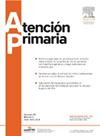老年慢性病患者健康教育体会
IF 1.6
4区 医学
Q2 MEDICINE, GENERAL & INTERNAL
引用次数: 0
摘要
目的了解老年慢性病患者的健康教育经验。采用现象学方法的定性研究。背景:哥伦比亚昆迪纳马卡中部地区各市。参与者该研究通过面对面的半结构化访谈进行。共有40名老年人参与了这项研究。方法采用访谈法收集资料,采用ATLAS进行编码和分析。ti的软件。结果分析揭示了三个主要主题:老年人通过最初的体征和症状以及对以前生活习惯的反思来意识到自己的乳糜泻。诊断后,他们通过药物治疗、健康检查和定期临床检查等新的活动和常规来管理乳糜泻。治疗依从性受个人经历和采用新的生活习惯的影响。结论老年人的心理变化是一个受个人历史、经历和家庭支持等外部因素影响的学习过程。研究结果为设计健康教育战略提供了有价值的见解,这些战略旨在提高老年人在其保健过程中的能力。本文章由计算机程序翻译,如有差异,请以英文原文为准。
Health education experiences of older adults with chronic disease
Objective
This study describes the health education experiences of older adults with chronic disease (CD).
Design
A qualitative study employing a phenomenological approach.
Setting
Municipalities of Central Region of Cundinamarca Colombia.
Participants
The study was conducted through face-to-face semi-structured interviews. A total of 40 older adults participated in the study.
Methods
Data were collected through interviews, which were then coded and analyzed using ATLAS.ti software.
Results
The analysis revealed three main themes: Older adults became aware of their CD through initial signs and symptoms and reflections on previous lifestyle habits. After diagnosis, they managed CD through new activities and routines including pharmacologic treatment, health check-ups, and regular clinical tests. Treatment adherence was influenced by personal experiences and the adoption of new lifestyle habits.
Conclusions
The changes experienced by older adults implied a learning process influenced by their individual history, experiences, and external factors like family support. The findings provide valuable insights for designing health education strategies aimed at improving the empowerment of older adults in their healthcare process.
求助全文
通过发布文献求助,成功后即可免费获取论文全文。
去求助
来源期刊

Atencion Primaria
医学-医学:内科
CiteScore
2.90
自引率
8.00%
发文量
156
审稿时长
33 days
期刊介绍:
Atención Primaria es una revista que publica trabajos de investigación relativos al ámbito de la atención primaria de salud. Desde el punto de vista conceptual, Atención Primaria asume el nuevo modelo de atención primaria de salud, orientado no sólo a la curación de la enfermedad, sino también a su prevención y a la promoción de la salud, tanto en el plano individual como en el de la familia y la comunidad. En estos nuevos aspectos que definen el modelo de atención primaria de salud es en los que se centran los trabajos de investigación que publica Atención Primaria, la primera revista de originales española creada para recoger y difundir la producción científica realizada desde los centros de atención primaria de salud sobre cuestiones como protocolización de la asistencia, programas de prevención, seguimiento y control de pacientes crónicos, organización y gestión de la asistencia primaria, entre otros.
 求助内容:
求助内容: 应助结果提醒方式:
应助结果提醒方式:


